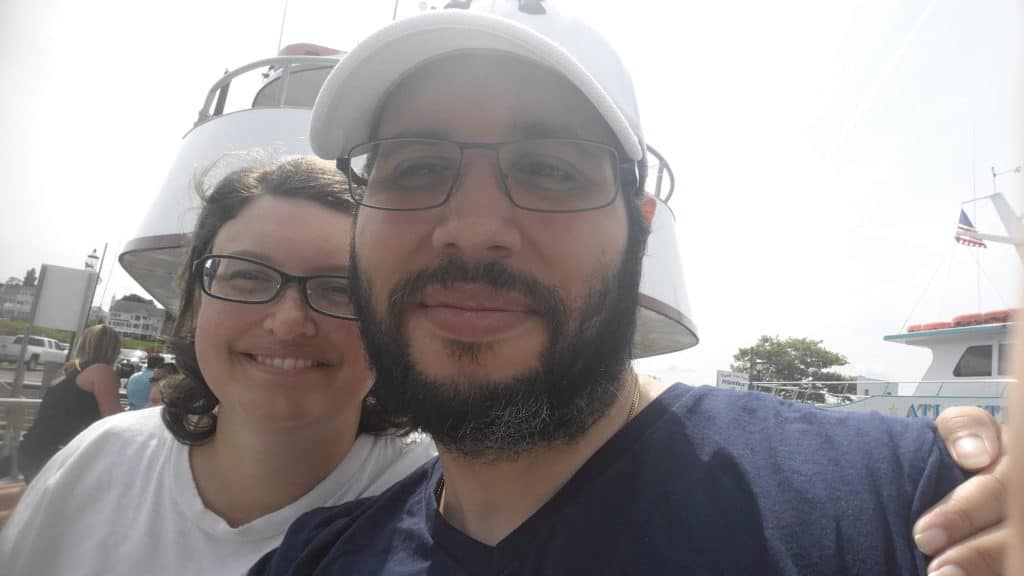So now that the new year has started, lots of people are making their New Year’s resolutions, planning for the year ahead, and otherwise trying to work on a clean slate.
In the meantime, those of us managing disabling and chronic conditions often find ourselves frustrated because our symptoms or conditions don’t allow for a clean slate, and we often feel like we can’t do what we want(or all of what we want) due to our disabilities.
This is especially rough the first year or two after a diagnosis, when you’re still adjusting to your identity shift, and trying to better understand who you are, now that your life plans have been affected by your illness or injury.
One thing that I recommend, is taking some time to assess where you are now in life, what your new normal is, and how your plans, likes, and dislikes may shift now that you have your condition.
For people who have been managing their condition for a while, this is as good a time as any to reassess and think about if you’re doing worse, or better, or just differently, and what you have realized won’t work for you, and what new ideas, activities, or treatments you may want to try!

What can I do without accommodations?
So, following the idea of creating a gratitude list, you may want to start by listing the things that you can still do, feel, or experience without needing any accommodations.
This list may be of physical activities, like being able to use the bathroom or walking through your house.
There may also be mental activities, like remembering details, writing creatively, appreciating music, or being able to plan your meal.
It could be emotional activities, like getting absorbed in music or art, or finding things to be happy about, or being able to recognize when you are feeling sad or upset.
Most likely your list will be a combination of things. This list can help you feel a bit better about yourself, and also give you a

Recognizing your strengths and abilities is a very important part of healing, so take the time to make as long a list as you can.
I feel very lucky about the things I can now or still do. For example, I can safely use the stairs again!
I spent several years where my movement symptoms would occur spontaneously with no forewarning. It wasn’t safe for me to climb stairs unaided because of the risk of falling.
This was one of the abilities I regained after my time in the MoRe program in Louisville!
I also can now read without symptoms – so I can once more lose myself in a fantasy or science fiction novel, totally exploring those worlds and characters without my symptoms interfering.
While I have a history of depression and depressive thoughts, I, for the most part, am able to maintain a positive and hopeful mindset – though of course sometimes that is extra effort. These are all things that I can do, and enjoy, despite my condition still being considered totally disabling.

What can I do with adjustments?
The next consideration is what things have you found alternative ways to do or enjoy? Even if you can’t do them precisely how or as much as you did them before your disability, have you found, or can you find, a way to still do that activity that you enjoyed?
This is another useful list to make for yourself – it may be something you share with friends or family members(as
For example, Al and I discovered that despite his pain and associated hip issues, he still was able to enjoy party boat fishing. We tried it initially a couple of years before his

After his accident, we weren’t sure if it would still be fun for him – but we tried it out and it was!
He still was able to do everything involved, but our accommodations for it were things like recognizing that that was going to be THE activity of the
My
I go through phases of getting deeply into something, followed by
I have had a few rounds of being very interested in cooking and meal preparation. My symptoms have made many aspects of cooking challenging – I couldn’t consistently cut up or prepare foods, and emptying pots of boiling water felt overly dangerous as well.
So I spent time rethinking what I could and couldn’t make, and planned meals and
You can make yourself a list of activities that you’d like to do and think you might be able to manage with accommodations – then share it with loved ones and see if you can make plans to push yourself and explore your abilities! You may surprise yourself.

Evaluating your experience
Anytime you try something new or different, you might want to take some notes for yourself about how it went and how it felt.
Did you feel happy or energized

What problems and challenges did you face? How did you feel the next day?
Thinking about the immediate and medium-term effects of trying that new activity can help you determine if you’re likely to be able to manage other, similar activities, and can also help you decide if it’s something you’d like to do again.
I don’t take physical notes on these things, but I do tend to think about how I feel after each thing I do and use some of that to decide if I enjoyed it enough to want to try again.
Sometimes the answer is yes, sometimes no, sometimes only under certain circumstances, but the better I know what I can do with my body and how much I can push my limits, the better judge I can be about the next opportunity that comes up.
There are many things that improve with practice as well, so thinking about just why something didn’t work well or feel right can also lead you to adjust your plans and try slightly different ways to do what you want.

What do I want to do most?
Setting goals is almost always a useful process. By giving yourself something to aim for, you have a specific target that you want to reach, which helps you better define success.
This is especially true when you build in rewards to that success.
For example, you may have a daily goal of walking to a specific room or chair, so you can see outside and enjoy the view, or go out for a walk every day so you can enjoy nature(that’s one of mine).

If you set an arbitrary goal(I should walk x feet today or ‘I should walk for at least 15 minutes’), there’s no built-in reward and the measurement process is less rewarding.
Following that logic, it’s important to keep giving yourself goals that are their own rewards whenever possible.
I’m sure that while you thought through the previous two lists, you kept hitting on the things that you just can’t do anymore, or can only do for a very limited time or under very specific circumstances.
What I’d like you to think about now are the things that you can’t do yet, or that you want to do more of, or for longer periods of time.
Write those down too, and list the challenges they present. Is it fatigue? Flexibility? Access?
Talk it over with your friends or family(and possibly your physical therapist), and see if you can come up with a way to make adjustments(to yourself or your situation) so that you can do these things that you used to do.
I have been through periods of not being able to read for long before my symptoms would act up.
Sometimes, I tried anyway, and other times I would explore other media(like movies and audiobooks) and find a way to get absorbing storylines and characters I could love.
With my movement symptoms, I spent years not being able to walk alone for long distances – my movements would start up and I wouldn’t be able to walk normally, which meant that I was much more likely to pull or injure something because my gait wasn’t right.
I found that when I was distracted(like talking to somebody) I could go for my walks.
Often, when I’d get together with friends, we’d plan some walking time out in nature, so I could enjoy it, even if not on as regular a basis as I’d like.

Is what I’m trying worth the spoons?
The other piece of the evaluation is what your primary goals are right now, and how much energy any of the activities take.
If you are struggling to get through the day, you don’t want to add in too much, or if you’re exploring a new treatment or adjusting to a new medication, you’re generally going to need to focus on that adjustment, rather than try to add a lot of new options to your docket.
There are also things that are only an opportunity on occasion, like a specific holiday tradition or the opportunity to attend a socially important event(like a wedding or a birthday celebration).

Sometimes there are things that you want to do so badly that you will, no matter what, and there are other events that are less significant to you.
For example, every year, Al and I celebrate Christmas with both our families, meaning that we’re out for nine-plus hours twice in a bit over a 24 hour period.
This is not sustainable, but it is something that we can manage once a year with planning.
It’s worth it for us to do that because it is a special holiday thing. We spend the day before and the day after being minimally active so we can enjoy the 24th and 25th more.
Sometimes, though, things are just not worth the effort.
I stopped driving years ago because I learned that even if I could safely get myself to somewhere (and that was definitely an if), the stress of participating in the event at the location(work, play, medical appointment, or anything in between) would often leave me feeling unsafe to drive home.
That would leave me needing to get a second driver AND a ride home(at the last minute), which was often much more complicated and stressful than arranging for transportation back and forth.
I surrendered the ability to use a car for the security of knowing that I could plan a safe way to attend the things I wanted or needed to, knowing that I wouldn’t need to worry about having the energy to safely drive home.
Only you can decide what is and isn’t worth it for you, but I want you to remember that just because you MAY be able to do it doesn’t always mean that you SHOULD do it all the time.
If taking a shower uses up most of your spoons for the day, maybe that becomes a once-a-week activity(there are wipes and other things for the areas that need it).
If you could make dinner then be useless for the evening, maybe you need to negotiate with your family to fold the laundry or do the dishes or some other activity that’s less exhausting for you instead, so you can help around the house without losing out on social time with
You can and should work on finding the best options for

Other Considerations
A lot of us have good days and bad days – some days we have something resembling a normal amount of energy to manage our lives, and other days when just blinking feels exhausting.
Since we don’t have the same amount of spoons each day, we may need to adjust what we expect of ourselves regularly as well.

I have ‘good day’ goals for myself that I often reduce or modify if I realize I’m having a low-spoon day.
When I get sick on top of my condition, I often just accept that I’m doing well if I manage my basic necessities like food, sleep, and using the bathroom.
If I can manage anything more than that, great, but I try not to expect more from myself.
We also often have variations in our ability and capability in the medium-to-long term.
For example, when Al broke his hip, we had very few expectations for him right after he got out of the hospital.
His mobility was very limited and he wasn’t allowed to put any weight on his damaged side, so walking, opening the refrigerator, or going to the bathroom were all things that could make him fall. For the most part, he stayed in bed and rested.
After a few weeks of healing, he had some more energy and was able to help me around the house in limited ways, like folding laundry and other things he could do from the bed.
Once he could put
For many of us with chronic conditions, there are times that are more stable and more unstable. I have symptom shifts on a somewhat regular basis – new symptoms happen, and old symptoms fade away(at least temporarily).
I need some time to adjust to new symptoms, so I don’t try to add to my plans or schedule when I’m first adjusting to a new symptom.
I need to relearn my capabilities and figure out what adjustments I need to make.
When things seem more stable and I feel like I have a better handle on what my body is likely to do, I can start pushing my limits a bit more and try new
It’s important that you recognize where you are in that process – you don’t want to overwhelm yourself when you’re already doing a lot of mental adjustments!
It is helpful and healthy to push your limits a bit, or learn to redefine them, whenever it feels safe(or minimally dangerous) to do so!

Be nice to yourself
Sometimes this process is emotionally painful – learning and accepting what your limitations are is always a bit tough, but when you have a before and after(I can’t do this NOW but I could before x happened), it’s especially rough.
It is very appropriate to grieve that loss – losing who you were and what you could do.
The important thing to recognize

You still can have hopes, dreams, and goals.
You can still become stronger, warmer, more aware, or learn more.
Your condition or situation isn’t the end of your
One thing that’s important about change in your life is recognizing it, another very important aspect is determining your current boundaries and how and where you can push them. Usually, this means fully accepting your condition.
Whether you are in a wheelchair, blind, deaf, or depressed, you have new boundaries to explore, and new aspects of yourself to recognize.
You may no longer be able to go down the path in life that you had planned or visualized, but you can still find a path that can make you happy- a path that gives you purpose.
That sense of purpose and that feeling of ‘I can try it’ are what I’m hoping you get from reading my posts.
My goal, my reason for writing, my purpose, is to help others who are managing difficult times(that’s you!), can see the possibilities, and feel hope for the future!








You’ve outlined a wonderful process here, especially for those who are still adjusting to limitations and restrictions in their lives. It’s all great advice!
Thanks for sharing – and I agree with you 100% on enjoying nature! Getting outside every day is one of my goals too 🙂
Sue
Living with ME/CFS
Thanks so much Sue! I think that having a realistic understanding of what you can and can’t do(and when and how much) is one of the most important aspects of maintaining emotional health and well-being. With a range of personal expectations, you can challenge yourself without being unrealistic, and can know what
you can safely manage. I think it’s so important to recognize limits and manage expectations, without giving up on possibilities!